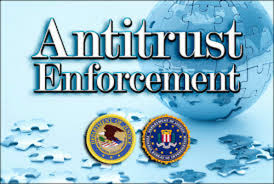Antitrust Division Enforcement – As Promised and Being Delivered

The Antitrust Division’s Assistant Attorney General Jonathan Kanter promised a new era in antitrust enforcement. He won bi-partisan support from both Republicans and Democrats. Across the antitrust field, he promised aggressive merger enforcement, civil enforcement against digital markets, and constraint of market power in numerous industries. AAG Kanter promised a new approach and he is delivering.
The annual Antitrust Spring Meeting in Washington, D.C. is an important and fascinating annual event. This is even more true in today’s antitrust enforcement environment. AAG Kanter delivered another important speech outlining early trends demonstrating his commitment to what he promised.

When it comes to merger enforcement, AAG Kanter alerted everyone early in his tenure that he planned to reject remedial settlements to merger cases and instead would seek abandonment of illegal mergers. According to AAG Kanter, the remedial settlements did not effectively work in practice. He cited the fact that research determined that remedial settlements, including divestitures of “overlapping” assets never achieved the expected results of increasing competition.
As an example of these so-called “flimsy settlements”, AAG Kanter cited comments from a recent Food and Agriculture listening session conducted with the FTC, which centered on a 2017 dairy merger that failed to preserve (much less advance) competition.
AAG Kanter noted that the Antitrust Division has sued to block four mergers in the last four months. In fact, DOJ rejected a proposed settlement from Cargotec and Konecranes, which resulted in the parties abandoning the proposed $5 billion transactions.
AAG Kanter observed that it currently has six active civil cases, including the monopolization case against Google, and merger challenges against American Airlines, Penguin-Random House, united Health Group. U.S. Sugar and Verzatec.
With respect to criminal enforcement against illegal cartels, AAG Kanter cited its record of 21 indicted cases against 42 individuals, including 9 CEOs and corporate presidents. As of the end of FY 2021, the Antitrust Division has 146 pending criminal grand jury investigations. Much of the Antitrust Division’s criminal enforcement focus has been on labor markets and illegal no-poaching agreements and wage-fixing collusion.

In anticipation of this growing litigation workload, AAG Kanter has turned to reorganization and expansion of resources and staff. He has appointed two supervisory Deputy Assistant Attorney Generals to oversee the Antitrust Division’s rapidly expanding litigation workload. To address litigation resource needs, the Antitrust Division is actively hiring additional trial attorneys.
In another interesting announcement, AAG Kanter warned that the Justice Department intends to increase enforcement of Section 8 of the Clayton Act, which prevents interlocking directorates. Section 8 enforcement has historically been restricted to merger enforcement investigations. AAG Kanter has specifically ordered increased focus on Section 8 enforcement outside of potential mergers.
AAG Kanter noted changes its criminal leniency program. The changes made are intended to ensure that companies report potential criminal activity promptly after discovery and to ensure that companies remediate any potential violations prior to receipt of a leniency letter. Thus, companies will be required to enhance and remediate their antitrust corporate compliance programs to meet DOJ’s expectations and requirements. As part of this leniency reform, the Antitrust Division issued a comprehensive re-write of 50 FAQs relating to the operation of its leniency program.















